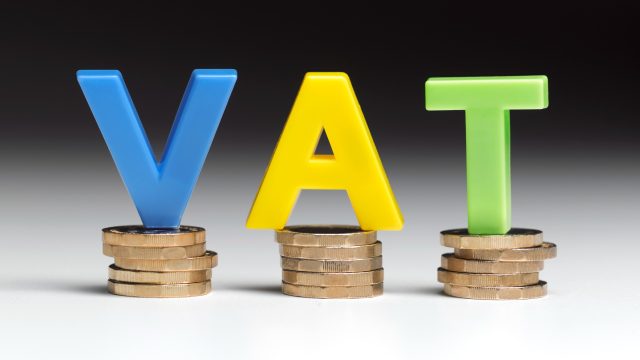
Britain’s VAT rules have long been the butt of jokes such as when is a biscuit actually a cake.
Value Added Tax (VAT) on goods and services – first introduced in the UK in 1973 – is the biggest money-maker for HMRC behind income taxes, bringing in £168 billion to the Treasury last year.
The standard rate of VAT is 20%; 5% on the likes of child car seats and home energy; or 0% for most food, children’s clothes and tampons. VAT rates in the UK have been described as “mysterious” and “absurd”, said the BBC, but remain central to the government’s tax-and-spend plans.
What is exempt?
On the face of it there seems little rhyme or reason why some goods are charged at the full 20% and others at zero, in the full list on Gov.uk.
Biscuits are an especially “tricky tax terrain”, said The Economist. A McVitie’s chocolate digestive, for example, faces a 20% VAT levy, while a plain one has zero. Famously, a 1991 court ruling found Jaffa Cakes to be biscuits, despite their name, and therefore exempt from VAT altogether.
Potato crisps are regarded as confectionery and are therefore taxed at 20%, while tortilla chips are not. Nuts are even more confusing, with those sold for human consumption zero-rated if in their shells, but if de-shelled and roasted or salted they’re taxed at the full 20%.
Wigs or hairpieces are exempt from VAT if bought because of a medical condition, and women who have undergone surgery for breast cancer are exempt from paying VAT on their bras. Like the argument against the “tampon tax”, radiographers have labelled this “discriminatory”, said the London Evening Standard, and said everyone should be exempt given they are a basic necessity for many people.
Lottery, bingo and raffle tickets are exempt from VAT, as are gambling activities, as well as most books, newspapers and magazines – but not diaries or stamp collections.
Why are some goods VAT-free and not others?
The argument for VAT exemptions is primarily based on fairness, as cutting the levy on “essential” goods helps the poorest in society.
But this does not always stack up. Take toilet paper, which is charged at 20% as it is deemed “luxury goods” while caviar and helicopter rides are exempt as they’re classed as “essentials”.
The £247 million that the toilet roll levy rakes in for the Treasury each year may be “pennies to the government,” said The Express, but it “has a much greater impact on UK households, and disproportionally affects the most vulnerable in our society”.
In February, toilet roll manufacturer Who Gives a Crap started a campaign for the “roll tax” to end, backed by the Hygiene Bank, a charity that helps those on low incomes by providing essential toiletries.
But while these have the overwhelming backing of the public, “one criticism of campaigns like this is that the money goes back to the businesses, not consumers”, said The Guardian. Analysis of the impact of removing the “tampon tax” by advisory firm Tax Policy Associates found that prices were cut by just 1% with the majority of the savings, worth about £10m a year, retained by retailers.
Does the system work?
Britain has more VAT reliefs than almost any other Organisation for Economic Co-operation and Development (OECD) country, worth around £70 billion annually according to HMRC.
“In the UK it is applied on only about half of overall consumption, which is really low by international standards,” Professor Rita de la Feria, chair in tax law at Leeds University, told The Guardian.
“If you look at very progressive societies, they have high levels of VAT collection,” she said, citing New Zealand which has no zero rates but where VAT is used to support those on low income.
Despite the estimated £40 billion that would be raised by bringing the UK into line with the OECD average, political considerations have long stymied any serious reform of the VAT system.
George Osborne was the last chancellor to propose a major change with plans in 2012 to extend the levy from cold takeaway food to hot takeaway food, but was forced into an embarrassing climbdown after tabloids branded it a “pasty tax”. The Labour Party under Keir Starmer plans to charge VAT on private school fees but even this has been labelled merely tinkering round the edges of a much bigger problem.
Instead, “wholesale reform, not piece-by-piece tweaks,” is what is needed and “would focus the conversation on the overall tax system”, said The Economist.
“Some grumbling would be inevitable: there would be headlines about ‘coffin taxes’ and ‘zoo levies’. But if tax increases were wholly or partly offset by a cut to the standard 20% rate of VAT and by more generous benefits for the poorest, that would clean up Britain’s tax system, encourage firms to grow and shut down the cottage industry of lobbyists clamouring for more exemptions.”
‘Mysterious’ and ‘absurd’ tax brought in £168 billion to HMRC last year






